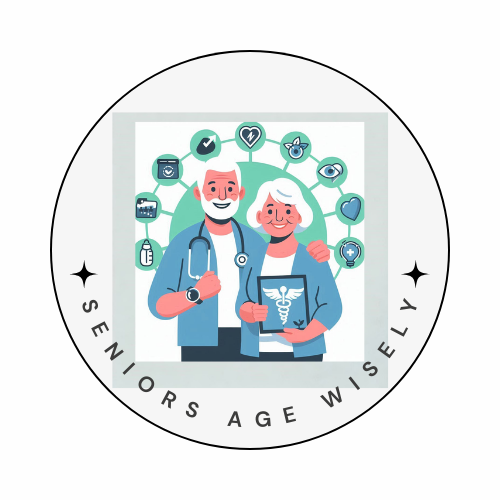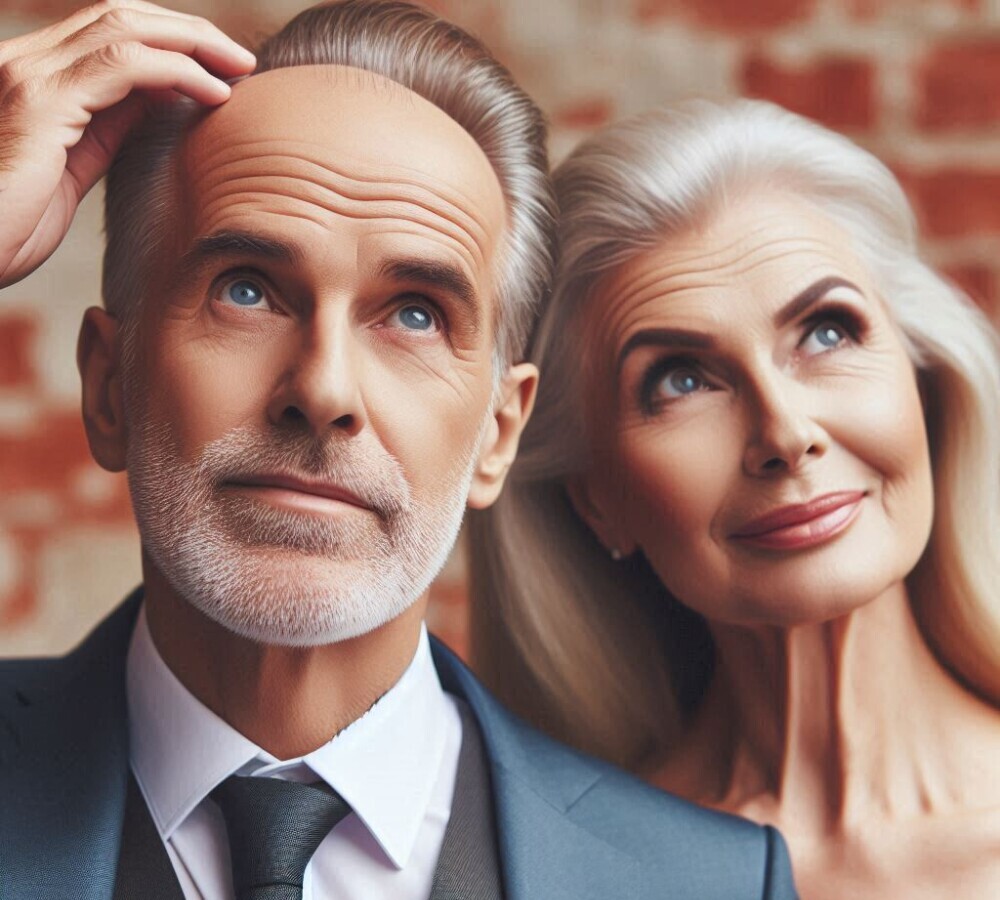
Alright, let’s have a chat about something that touches pretty much everyone as we get a little more seasoned: our hair. You know how it sometimes feels like you’re leaving a little more behind on the brush or noticing a bit more scalp peeking through? Yes, we’re diving into hair thinning and senior hair falling out in our otherwise wonderful older years, for both the men and the ladies.
Now, if you’ve noticed your hair isn’t quite as thick as it used to be, you’re definitely not alone. It’s actually super common. By the time we hit 50, around half of the guys out there have noticed some hair loss, and about a third of the ladies have too. Fast forward a couple of decades to the big 7-0, and those numbers climb even higher – we’re talking around 80% of men and over half of the women experiencing some degree of thinning. It’s just a part of the aging process for many of us.
So, what’s the deal? Why does this happen? Well, there are a few key players in this hair-thinning saga:
- The Family Tree: Yes, good old genetics often plays a big role. If your parents or grandparents experienced hair loss, chances are you might too. It’s just in the cards for some of us.
- Hormone Havoc: Especially for women, those hormonal shifts, particularly after menopause, can really impact hair. The change in estrogen levels can sometimes lead to thinning.
- The Medicine Cabinet: Believe it or not, some medications can have hair loss as a side effect. Things like certain cancer treatments, arthritis meds, and even some for high blood pressure can sometimes contribute.
- Underlying Health Stuff: Sometimes, hair loss can be a sign of an underlying medical condition, like thyroid issues, anemia (low iron), or even lupus. So, it’s always good to keep an eye on things.
- Stress City: Life can get hectic, and stress can actually take a toll on our hair. Those stressful periods can sometimes lead to temporary hair shedding.
Okay, so we know it’s common and we’ve got some of the reasons why. But what can we actually do about it? Of course, there’s always the obvious move of looking at short hairstyles for thin hair, but let’s talk about some things you can tweak in your daily life that might just give your hair a little extra love.
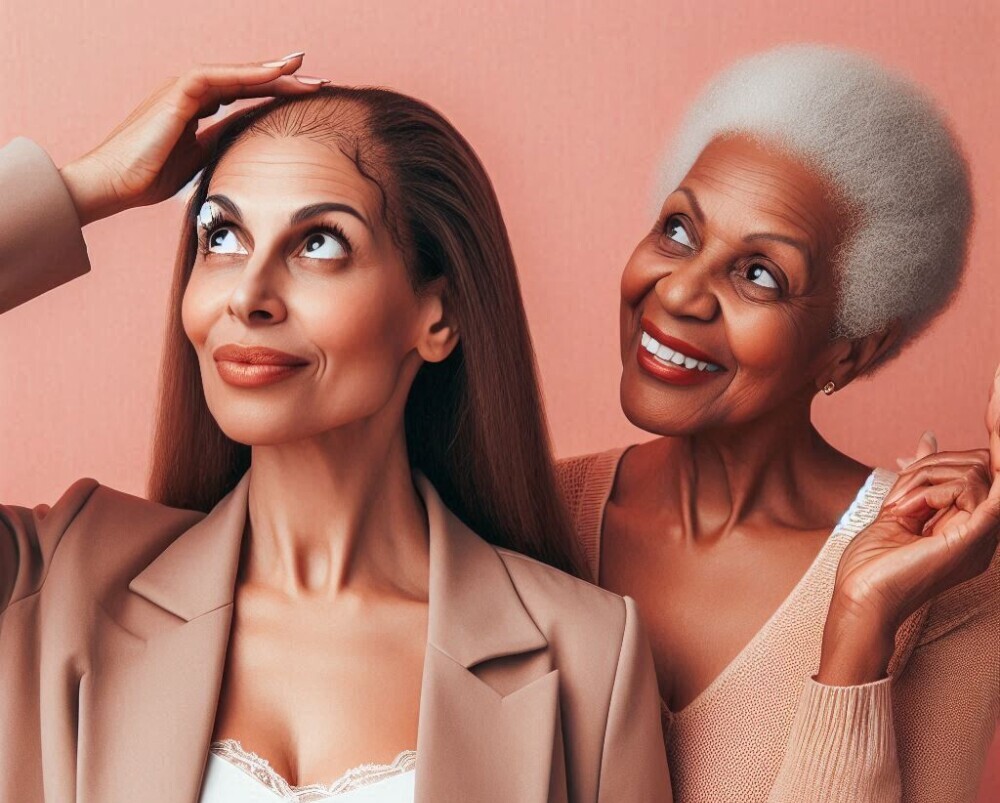
Food for Thought (and Hair Growth!)
What you eat can actually have a surprising impact on your hair health. Think of it like feeding your hair from the inside out. Here are a few things to focus on:
- Eat the Rainbow (and the Whole Grains): A well-balanced diet packed with fruits, veggies, and whole grains is just good for overall health, and that includes your hair. These foods are full of vitamins and minerals that your hair needs to thrive.
- Protein Power: Hair is mostly made of protein, so it makes sense that getting enough in your diet is crucial. Think lean meats, fish, eggs, beans, and lentils. These are the building blocks for strong, healthy hair.
- The Supplement Scoop: You might have heard about certain supplements like biotin and zinc. They can sometimes help with hair health. And then there’s iron, which is super important, and omega-3 fatty acids, those good fats you find in oily fish, like salmon. Even Vitamin C, the antioxidant superstar, can help protect those hair follicles. Now, while these nutrients are great, always have a chat with your doctor before popping any supplements, just to be on the safe side. Find out more about staying well and healthy with selected supplements.
Think of these foods as giving your hair the raw materials it needs to do its thing. While they might not magically make a bald spot sprout a full head of hair overnight, as a senior hair loss treatment they can definitely contribute to a healthier scalp and potentially stronger strands.
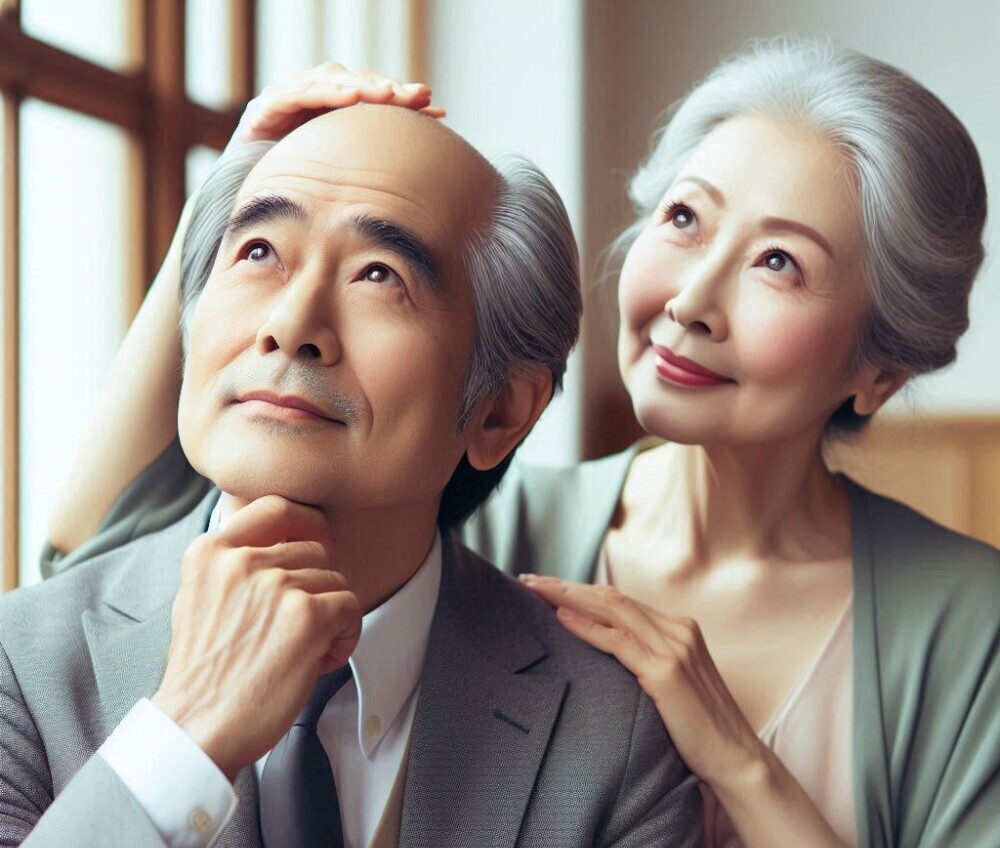
Beyond just eating well, there are a few other lifestyle habits that can make a difference:
- Get Moving: Regular exercise isn’t just good for your body; it can also boost circulation, which is important for getting nutrients to your scalp.
- Chill Out: Managing stress is key. Whether it’s through yoga, meditation, hobbies, or just spending time with loved ones, finding ways to relax can help keep stress-related hair loss at bay.
- Gentle Hair Care is Key: Treat your hair like the precious thing it is. Avoid harsh chemicals in dyes and perms and be gentle when you brush and style it. No aggressive tugging!
- Catch Those Zzz’s: Getting enough sleep is vital for all sorts of bodily functions, including hair growth. Aim for those quality hours of rest.
Products and Potions: What’s Out There?
You’ve probably seen commercials and ads for all sorts of products promising to regrow your hair. some of the more common ones are either a topical or an oral medication that you can take. However, as I mentioned, there are various supplements marketed for hair growth. As always though, it’s wise to chat with your doctor before starting any of these. This is certainly the case with any medications—however you might like to check these food supplements out:
Here’s a multi-ingredient food supplement that could be effective in combating senior women hair loss as it’s a product that’s designed to inhibit hair loss in women;
And here’s a multi-ingredient food supplement for men could be effective as a senior men baldness treatment as it’s a product that’s designed to inhibit baldness, support hair growth, and have a positive effect on your scalp condition. For the men as a bonus you might like to also check this out as a senior hair loss shampoo that’s dedicated to men.
The Power of Touch: Exercise and Massage
Now, while you might not think of exercise as a direct hair-loss solution, what about that increased blood flow we talked about? It can definitely help deliver vital nutrients to your scalp and hair follicles. So, staying active is a good idea overall.
And speaking of blood flow, let’s talk about scalp massages! There’s some evidence suggesting that gently massaging your scalp can actually encourage hair growth. It’s thought to boost circulation right at the root of your hair. You can do this with your fingertips or even a special scalp massager. Aim for a few minutes a couple of times a week. It feels nice and might just give your hair a little nudge in the right direction.
The Bottom Line
Dealing with hair thinning or loss as we age is a pretty common experience for both men and women. While genetics and hormones play a big role, there are definitely things you can do to support healthy hair. Eating a balanced diet, managing stress, being gentle with your hair, and even incorporating scalp massages might make a difference.
If you’re really concerned about the changes you’re seeing, the best thing you can do is have a chat with your doctor. They can help figure out the underlying cause and recommend the most appropriate course of action for you. Remember, you’re not alone in this, and there are ways to approach it with knowledge and care.
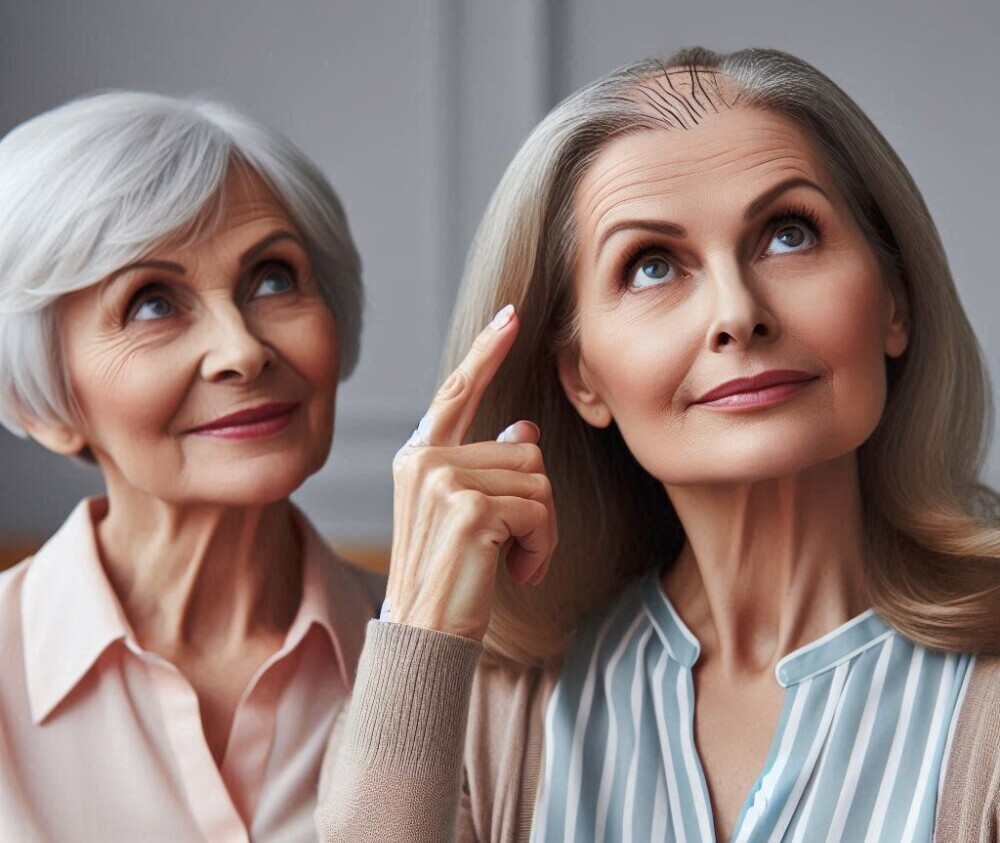
Affiliate Disclosure
Here’s a little transparency: Our website contains affiliate links. This means if you click and make a purchase, we may receive a small commission. Don’t worry, there’s no extra cost to you. It’s a simple way you can support our mission to bring you quality affiliate marketing content.
